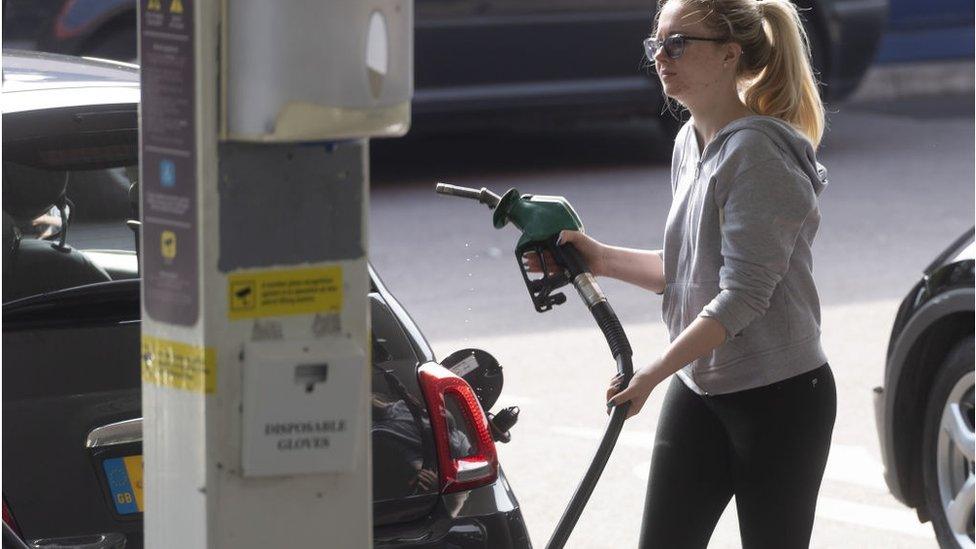Irish in Ukraine advised to shelter in place after Russian invasion
- Published
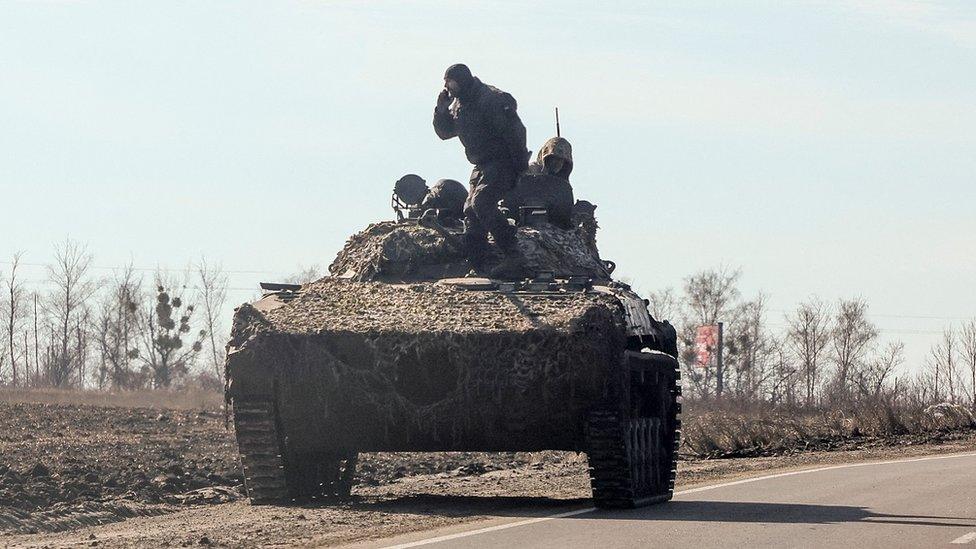
A Ukrainian army tank in the Kharkiv region after the Russian invasion of the country
Irish citizens in Ukraine have been advised to shelter in a secure place following Russia's invasion of the country.
Russian forces have crossed Ukraine's borders and are bombing military targets near big cities.
Ireland's Department of Foreign Affairs has warned its citizens against moving around the country in the coming hours.
Irish national broadcaster RTÉ reports there are 64 Irish citizens in Ukraine, external, down from 145 a week ago.
It says most are understood to have families and are settled in the country.
UK nationals were advised two weeks ago to leave Ukraine while commercial flights were still available. Those remaining have again been urged to leave Ukraine immediately - if they judge it is safe to do so.
Watch: Putin declares special military operation in TV declaration
Ukrainian President Volodymyr Zelensky announced that martial law was now being imposed across all of Ukraine following the invasion.
Russian President Vladimir Putin has insisted he does not plan to occupy Ukraine, but Ukraine has branded it a "full-scale invasion".
The Northern Ireland Assembly buildings were lit up blue on Thursday night as an act to show "solidarity" with Ukrainians.
Allow X content?
This article contains content provided by X. We ask for your permission before anything is loaded, as they may be using cookies and other technologies. You may want to read X’s cookie policy, external and privacy policy, external before accepting. To view this content choose ‘accept and continue’.
A Ukrainian student at Queen's University Belfast, who is currently in her home country, told BBC News NI that she and her friends are frightened - but defiant.
Valerie Kravtsova said people are terrified after Russia's invasion of her country, but defiant.
Valerie Kravtsova, a business management student, said: "You are terrified, but you have to keep calm and we must continue to live in order to support those people who we love and who protect us every day," she said.
"We don't want to die, no-one wants that but if that's what it takes to secure that territory, to secure the well-being of the most important people to us, we will do so, we will do what it takes."
'Run for our lives'
Nadia Dobrianska, an Irish language speaker who was studying for a master's degree at Queen's before returning to Ukraine where she is a human rights activist, told Radio Ulster's Evening Extra she had fled her home.
"My parents are ill so I had to take care of them," she said.
"My mother is close to a psychotic state, she's not thinking straight and I spent hours convincing her to leave, so I've evacuated now from Kyiv.
"I packed my things and rushed to my parents, thank God I was renting a house close to them."
She said she got her brother and broke the news of the invasion to him and together they convinced her parents who were in a "state of denial" that they had to leave.
She told her mother that no-one had anywhere to go, "we just have to go and take any food that we've got and just run for our lives".
Another Queen's student, Elizaveta Zagarina from Siberia, who studies at Queen's Management School, said she has been trying to keep up with the news from Russian sources.
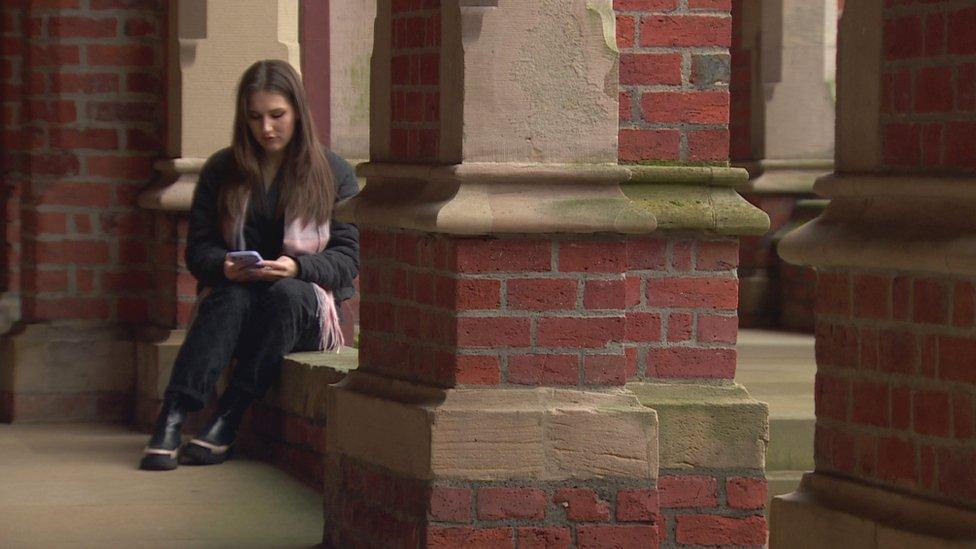
Queen's University Belfast student Elizaveta Zagarina, who is from Siberia, said Russian people are also concerned
"I sometimes have the feeling that people find Russians being aggressive," she said.
"I really want to highlight that Russian people feel very worried about what is going on there."
In a statement on Thursday, Taoiseach (Irish Prime Minister) Micheál Martin condemned Russia's actions.
"I utterly condemn, in the strongest possible terms, Russia's indefensible attack on the sovereign people of Ukraine," he said.
"We will work with our EU partners and at the UN to hold President Putin and his regime accountable.
"Russia will pay a high price for this outrageous act of aggression. We stand with Ukraine."
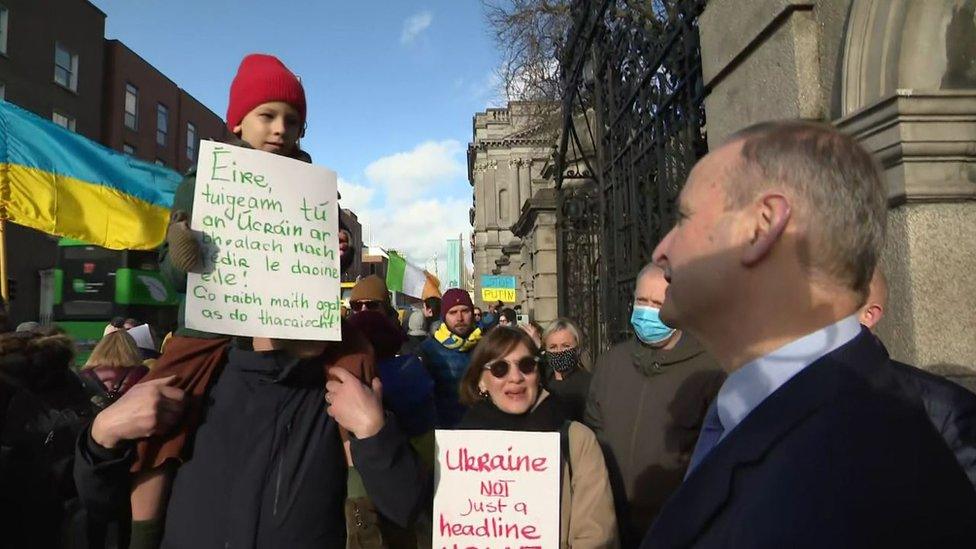
Protesters speak to Taoiseach Micheál Martin outside the Dáil
In Dublin, protesters gathered at the Russian embassy and at the Dáil (Irish parliament) to condemn the invasion.
Irish broadcaster RTÉ reported that the entrance to the embassy was covered in red paint to symbolise the "bloodshed" in Ukraine.
One protester at the Dáil said she had spoken to her parents in Kyiv on Tuesday morning as they tried to escape.
"The drive is one-and-half-hours, (to get) 200m. Dad is filling up the car and cannisters because there are big demands on diesel and petrol, there are big, tremendous queues," she told RTÉ.
"People are really panicking."
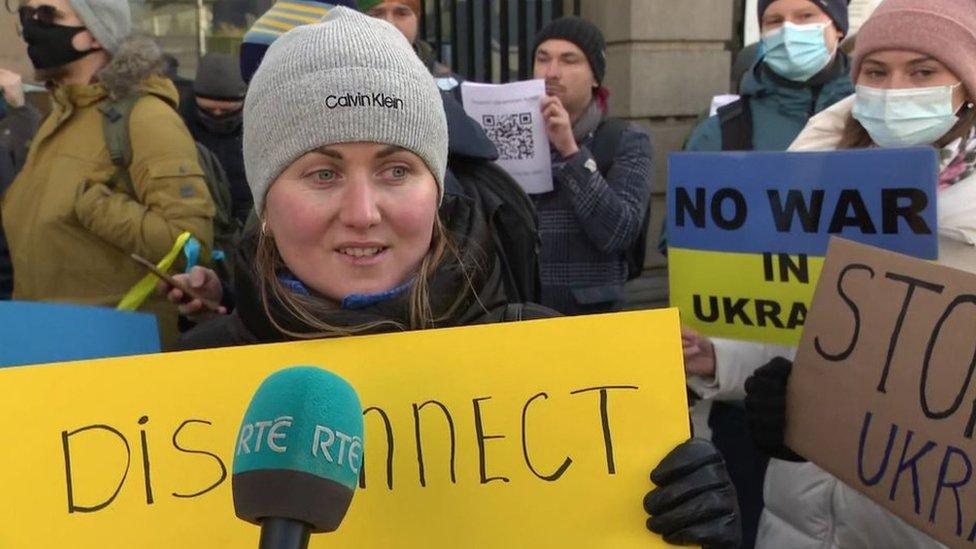
This protestor's parents are trying to escape the Ukrainian capital
Speaking on RTÉ's Morning Ireland, Irish Foreign Minister Simon Coveney accused Russia of "lying to the world".
"This is an illegal act of aggression by Russia," he said.
"They are lying to themselves and they are lying to the world about the justification for it.
"This is, make no mistake, an act of aggression against Ukraine, an independent, sovereign country that is being attacked by an aggressive neighbour, but it is also in many ways an attack on the kind of Europe we have built together, collectively since World War Two."
He said Ireland has two diplomats in Kyiv who "have moved to a safe place this morning".
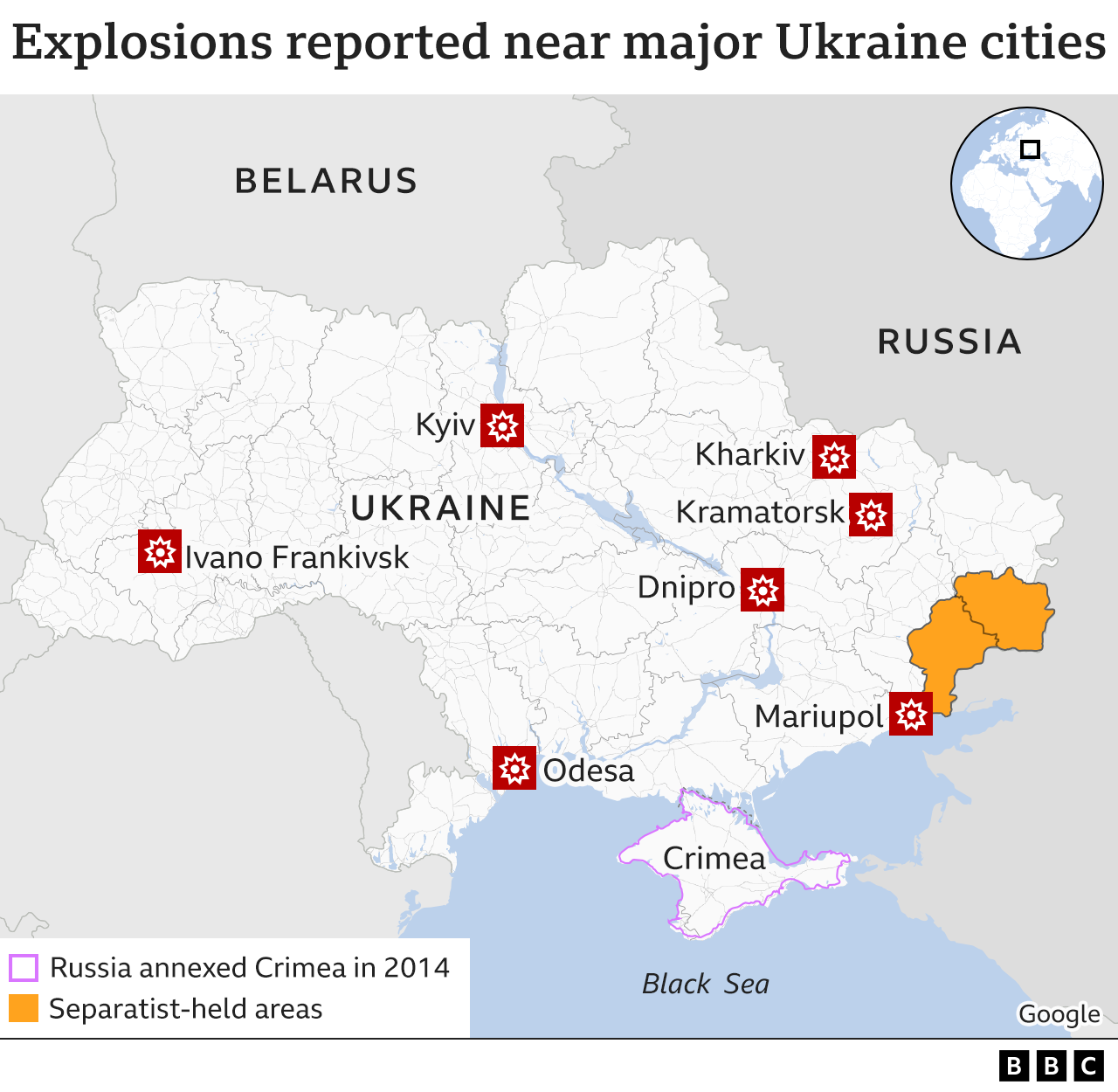
Speaking on the same programme Ukraine's ambassador to Ireland, Larysa Gerasko, said she was shocked by the invasion.
"I'm so emotional. I'm really shocked actually. My parents live 150km from the northern modern border of Ukraine and they're shocked of course," she said.
"So it's hard to believe that it happened in the 21st century."
She added: "The democratic world have to isolate Russia by all means, by all means.
"And of course Ukraine needs financial support and and humanitarian assistance."
UK Prime Minister Boris Johnson has described the invasion as a "catastrophe for our continent".
The UK announced a fresh set of sanctions against Russia on Thursday, including the exclusion of major Russian banks from the UK's financial system and measures targeting oligarchs.
Related topics
- Published21 February 2022
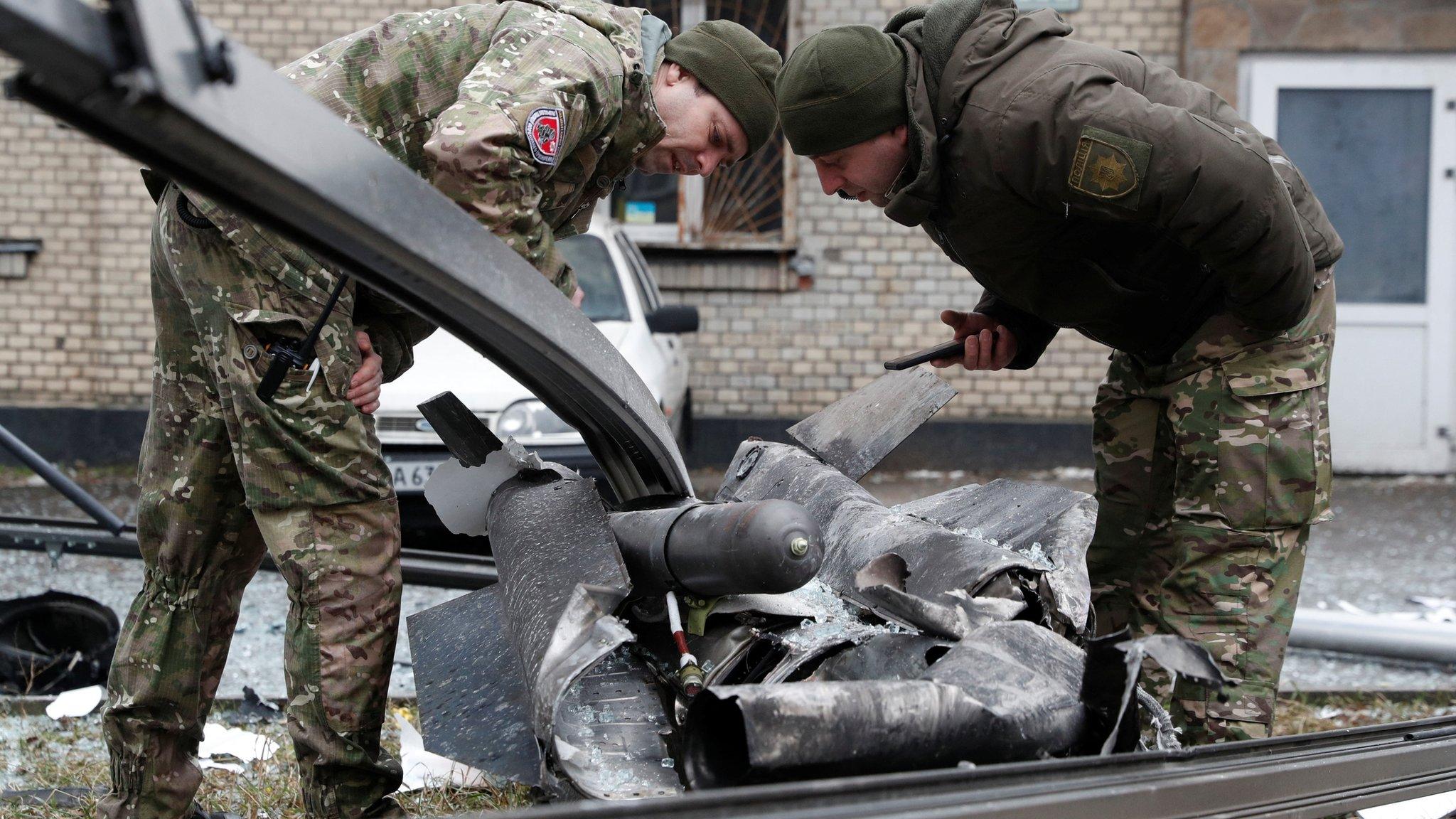
- Published23 February 2022
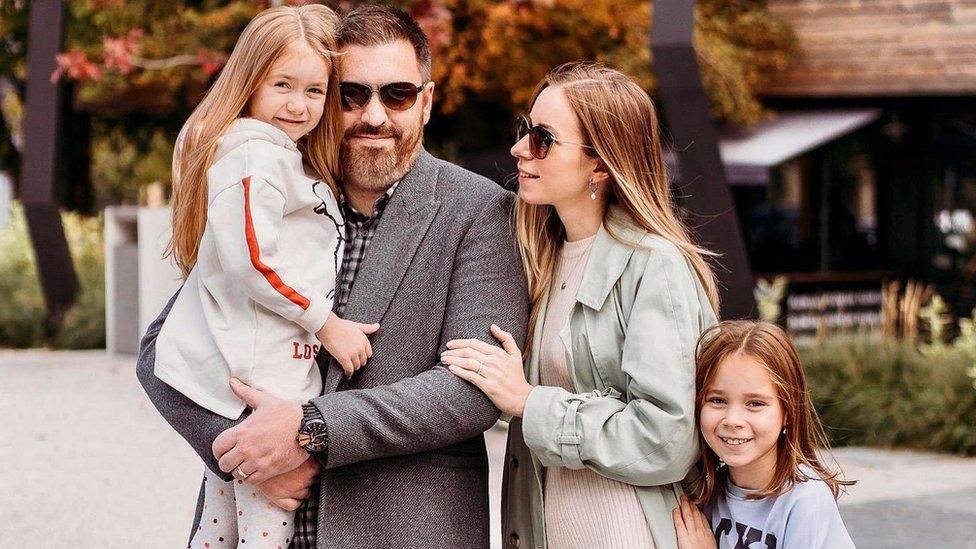
- Published22 February 2022
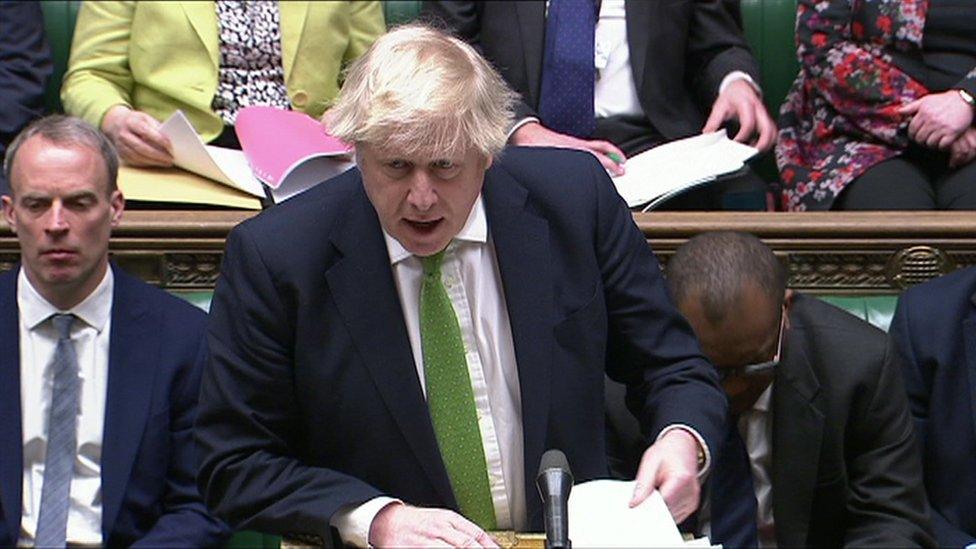
- Published24 February 2022
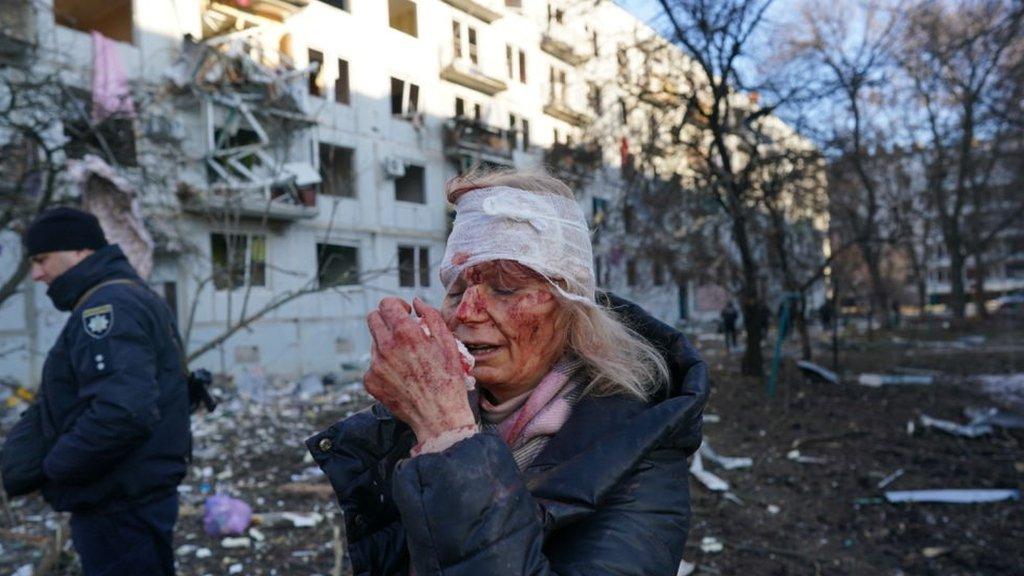
- Published24 February 2022
